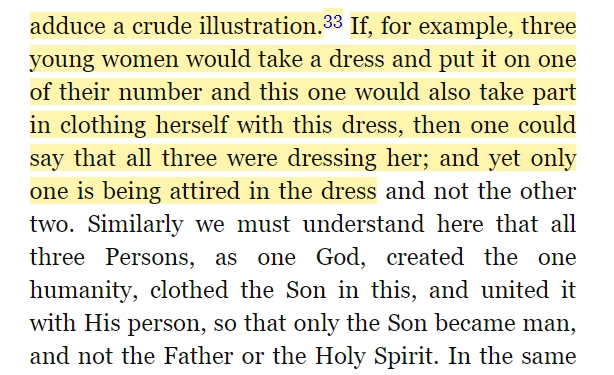
Here is a pretty good Trinity hymn by Joseph Hart (1712-1768). Hart is uneven as a hymn-writer (he can be didactic & predictable in way that makes you long for Watts & Wesley), but he has some excellent moments. archive.org/details/hymnsc…
He starts with the obligatory warning about what no created intelligence can fully comprehend about the Trinity, or even about the Trinity's work in salvation: 

But moves quickly to his main point: Christian experience is firmly based on the work of the Trinity in salvation. This link between the nature of salvation and the triunity of God is the focus of the hymn. 

So in one crisp stanza, Hart focuses on how each person of the Trinity is at work in the one, central action of the Son's death on the cross. 

Praises rises up from our recognition of the three persons working inseparably: this is the dynamic of trinitarian soteriology that is evoked by God's work, but is oriented toward God's being. 

Echoing the ancient doxology "Glory be to the Father," etc., Hart returns to the singling out of each person's work. Because he firmly presupposes inseparable action, Hart can speak freely of each person's way of working. 

Hart is also free to talk about the Son's willing compliance, precisely because he has never heard of "eternal functional subordination," or three separate faculties of will, or strong social trinitarianism, or other modern errors. Much amplitude & freedom with in easy reach.
Final stanza adds the Spirit to complete the movement of application. Hart drives the last two lines to a concluding "God Three-One" statement of salvation in a triad of verbs: sends, procures, seals. (aaand ends w/a typo: a final comma where a period should be.) 

• • •
Missing some Tweet in this thread? You can try to
force a refresh



